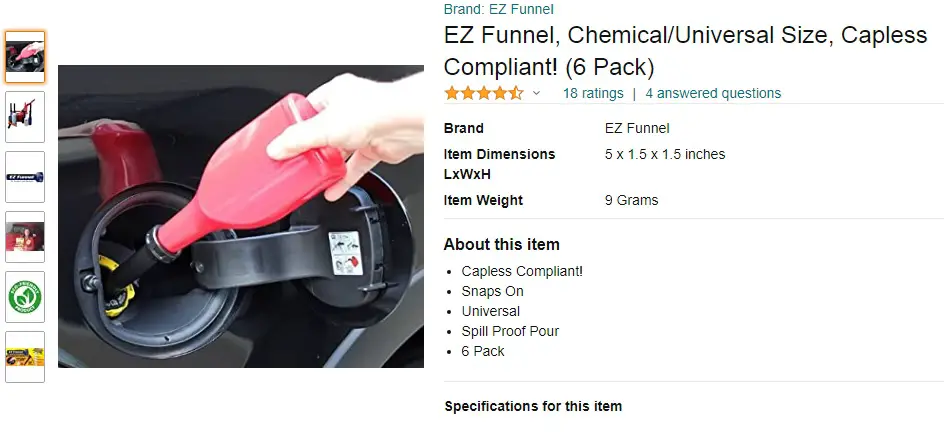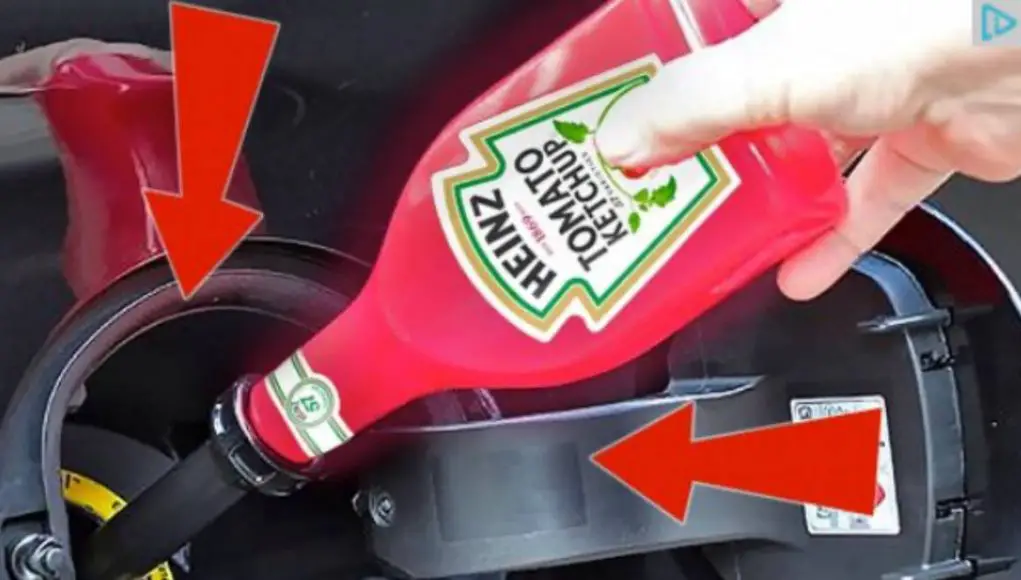You’re more likely to ruin your engine squeezing Heinz down your filler tube.
An ad for an EcoChip OBD2 device is making the rounds showing someone squeezing a whole bottle of ketchup into their gas tank. The caption reads, “1 simple trick to lower car fuel consumption by 55%.”
Please don't put ketchup in your gas tank pic.twitter.com/jn8zLOI9HS
— TireMeetsRoad.com (@TireMeetsRoad_) January 19, 2022
The ad, of course, is clickbait and no one should, under any circumstances, squeeze ketchup into your fuel filler. Not only will ketchup likely gum up your fuel system, if ketchup gets past your fuel filter, and into your fuel injectors, damage to your engine may occur.
So no, adding ketchup to your gas will not lower fuel consumption by 55%.
I’ll break down what’s in ketchup and what theoretically can happen if someone does squeeze ketchup into your gas tank.
Before that, let’s quickly debunk two things.
The EcoChip OBD2 device, which this clickbait advertisement leads to, is another scam OBD2 fuel saver device that does nothing but play a pre-programmed LED light show when plugged in.
As I’ve clarified in a previous blog about the same device with a different name, dozens of people have already bought these OBD2 devices, broke them apart, and confirmed there is no communication between the device and your engine.
With no ability to actively tune your engine, adjusting for fuel, air, and timing, they can’t improve your gas mileage.
As for the ad itself, Ecochip took a photo of the EZ Funnel fuel filler from Amazon, and shopped on a Heinz Ketchup label onto it.

With that out of the way, let’s breakdown Heinz Ketchup. The main ingredients are,
- Tomato Concentrate
- Vinegar
- High Fructose Corn Syrup
- Spices, salt, onion powder, and natural flavoring
If someone poured ketchup into your gas tank, and you haven’t started the car, removing and cleaning your gas tank and fuel filler neck of the tainted fuel and ketchup floating inside will sort out your problem.
But, if you’ve managed to start and run your car with ketchup, you might have a bigger problem on your hands.
While chunks of ketchup might float to the bottom, gasoline will start to break down and mix with the ketchup.
While the fuel filter will likely filter out the spices, salt, onion powder and corn syrup, gasoline mixed with the tomato, vinegar, and high fructose corn syrup slurry will make its way through fuel lines to your fuel injectors.
Your fuel lines and fuel injectors will eventually clog, but not before the tainted gas fires off in your engine’s combustion chamber.
Your guess is as good as mine if the dirtied gas will damage your engine, but I don’t think irreparable damage will occur. Combustion happens at high temperatures and is particularly exothermic. Considering ketchup is made up of organic compounds, the gas-ketchup cocktail will likely burn up, making your car’s engine, at worst, run rough.
You will have to thoroughly clean your gas tank, fuel lines, injectors, and replace your fuel filter after the fact. As Chris Fix shows, it’s a tedious, expensive, but not impossible process that ensures your engine is safe from any future damage and is up to filtering fuel as normal.
Then again, if we’re talking about a backup car that isn’t worth much, taking a gamble, leaving it up to your fuel filter to do its thing, and hoping for the best, ruined engine be dam**, might work out too.
But ketchup in your gas tank? Just clickbait and not a thing.
Please don’t squeeze Heinz into your gas tank.




